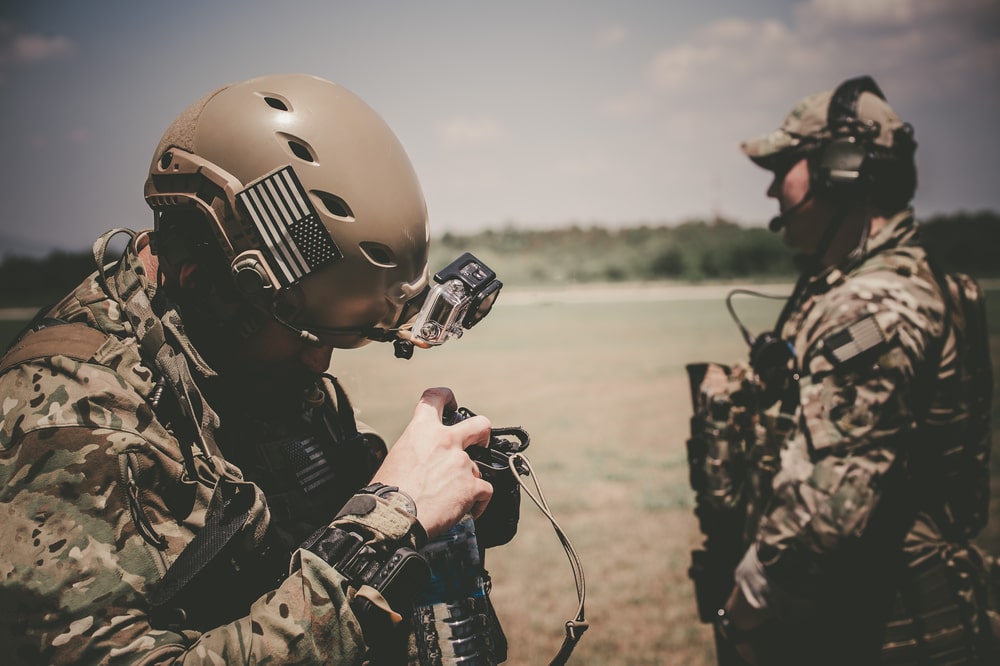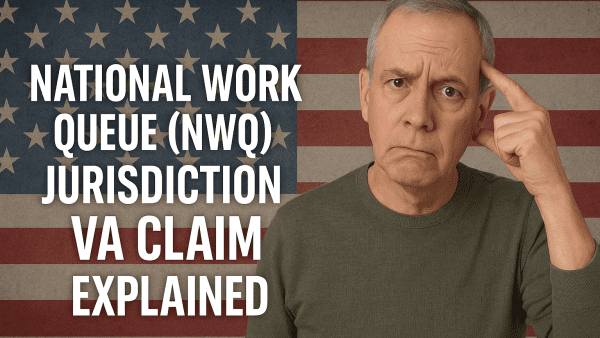Looking for Expert-Level VA Claim Answers?📱Call Us Now! 737-295-2226
Many Veterans wonder about working with 100% VA disability rating. This is one of many common VA myths out there that prevent Veterans from getting the benefits they deserve, including false beliefs about the types of jobs you can get and misinformation about how much money you can make.
Many Veterans don’t seek help for service-related conditions because of inaccurate information.
Their reasons for not seeking help are varied and personal, but here are some explanations for concerns we commonly hear about like reasons Veterans think that working with 100% VA disability rating is a problem.
As the #1 resource for disabled veterans, VA Claims Insider has debunked several of the major myths surrounding VA ratings, mental health, and the Veteran community.
Serving our country makes you eligible for treatment for service-connected conditions including mental health support.
You are not alone; don’t let these common VA myths prevent you from filing.
Our dedicated team here at VA Claims Insider are happy to be committed to providing disabled veterans with the tools to navigate the VA claims process.
- Myth Topic #1 – Mental health rating & gun ownership
- Myth Topic #2 – If you’re working with a mental health rating, you can’t work in law enforcement
- Myth Topic #3 – If you’re working with mental health rating, you must tell your employer
- Myth Topic #4 – If you’re rated at 100%, you can’t work
- Myth Topic #5 – Earning & Working with 100% VA Disability Rating
- Myth Topic #6 – You have to be diagnosed with your condition during Active Duty to receive VA Disability Benefits
- About the Author
Myth Topic #1 – Mental health rating & gun ownership

The first myths addressed here relate to how mental health affects responsibilities, and then we discuss working with 100% VA disability rating or whatever your rating may be. PTSD is the most common type of mental health rating, and there is a common VA myth that this type of mental health rating impacts your right to own a gun.
As of 2019, over 1.7 million Veterans have a VA rating for PTSD.
Just because you have a mental health related condition like PTSD that is recognized by the VA, that does not mean gun ownership is prohibited.
State laws differ, however the main reason people lose their rights to gun ownership is if they are considered mentally incompetent and are a threat to themselves or others.
PTSD and mental incompetence are not the same thing. If you are seeking help for PTSD or depression, read our article on how to file for a VA rating.
What exactly is mental incompetence, and who can decide if someone isn’t mentally competent?
Different states have different laws regarding when someone is and is not mentally competent.
Often, when a Veteran is considered to have mental incompetence, it is a result of a court of law or law enforcement requiring them to receive mental treatment.
If you’ve been involuntarily committed to a mental facility, many states prevent you from owning guns.
Bottom line, states will take away your rights to own guns if you are a threat to yourself or others.
If the VA decides you are mentally incompetent, a prohibiting record is sent to the FBI and entered into the National Instant Criminal Background Check System.
38 CFR § 3.353 defines mental incompetence as a person who because of injury or disease lacks the mental capacity to contract or to manage his or her own affairs.
Receiving a PTSD or other mental health rating does NOT indicate an inability to manage your affairs.
Still worried about your right to bear arms? It is a common VA myth that rating alone for PTSD does not meet these requirements.
Most people who have a PTSD rating can own firearms legally with no problem.
If you are struggling with the decision to get help for mental health issues, you aren’t alone.
If you are in crisis, call the VA Crisis Hotline at 1-800-273-8255 and PRESS “1” to talk to someone.
Myth Topic #2 – If you’re working with a mental health rating, you can’t work in law enforcement

Serving in the military provides many Veterans with a unique skill set that they can continue to use after military service: joining law enforcement.
According to U.S. Census data around 20% of law enforcement are Veterans.
The most important aspect of transitioning from the military to law enforcement is proactively taking care of your mental health.
The stigma surrounding mental health is changing.
When Veterans join law enforcement, they typically undergo a psychological evaluation. Suffering from PTSD and being open and honest about it does not automatically disqualify you from getting the job.
Unless your PTSD or other mental health issues would impact your ability to perform the job, you would still be considered for the position.
Law enforcement agents who have never served also deal with PTSD issues.
Recent partnerships with the VA have resulted in police departments improving how officer trainings address interacting with individuals who are suffering from PTSD.
This includes local resources that treat officers suffering from different kinds of mental health conditions including PTSD.
If anything, the mental health experiences of law enforcement officers have started to reduce the mental health stigma within law enforcement communities and increase the programs and treatment options for officers. Because Veterans can be working with 100% VA disability rating, using support resources is very important.
According to a study published by the Naval Center for Combat & Operational Stress Control, many U.S. law enforcement agencies look favorably on applicants who are receiving treatment for mental health issues and do everything in their power to ensure adherence to treatment protocols.
Common VA myths about law enforcement are that it is not an option for Veterans or being on the force working with 100% VA disability rating is a problem.
Myth Topic #3 – If you’re working with mental health rating, you must tell your employer

It’s understandable if you choose to withhold the information that you have a mental health rating with the VA.
In fact, doing so is completely your decision. It doesn’t matter if you are working with 100% VA Disability Rating or any other percentage, you may or may not choose to disclose.
There is absolutely no obligation to share your medical history with anyone, including your employer.
This is a protection under the Americans with Disabilities Act
The ADA protects employees, no matter their status. You can be working with 100% VA disability rating or you can be working with 10% VA disability rating and everything in between.
You can choose to tell your employer about your condition.
This is completely up to you as the Veteran.
One of the most common reasons why you would tell your employer is if you experience symptoms as a result of your condition (e.g. PTSD or traumatic brain injury) that would require accommodation at work. You can request accommodations for an rating including working with 100% VA disability rating.
If you do choose to tell your employer that you have a mental health rating, you are still protected.
The Americans with Disabilities Act: A Guide for Veterans protects Veterans from employment discrimination.
This protection extends to every aspect of employment including hiring, promotions, job assignments, training and even termination.
Employers are prohibited from treating any applicant or employee unfavorably due to their VA rating. It doesn’t matter if they working with 30% VA disability rating or working with 100% disability rating, employers must treat everyone favorably and with respect.
While you are applying for work and when you begin working with a disability rating, especially working with 100% disability rating, it is a myth that employers can treat you differently.
They can, however, give you preference over other similarly-qualified candidates due to your status as a Veteran.
If you are applying for a new job, your employer can ask you to indicate if you are disabled Veteran. They cannot ask you if you will be working with 100% VA disability rating.
This information is completely voluntary and used for affirmative action purposes.
Again, you aren’t required to tell anyone anything as it’s really none of their business.
Myth Topic #4 – If you’re rated at 100%, you can’t work

You may have heard the common VA myth that working with 100% VA disability rating is not allowed.
There are a lot of different reasons why Veterans receive a 100% VA rating, and there are a lot of different opportunities where Veterans find themselves working with 100% VA disability rating.
The bottom line here is that the only work restrictions come with a rating of Total Disability Individual Unemployability (TDIU).
TDIU provides full compensation at the 100% level for Veterans who can’t work due to their disability.
In short, the only Veterans who can’t work due to their VA rating are the Veterans who couldn’t work before they received the TDIU VA rating.
You can receive a TDIU rating even if your disability is rated less than 100% by the VA.
For more information on how to successfully file for TDIU, read our article on How to Win your VA TDIU Claim.
If you have a condition that would be worsened by employment, then you receive a temporary rating and compensation at the 100% level until your condition improves under TDIU.
100% disabled Veterans can still work. Working with 100% disability rating is not a problem even though there is a common myth that it is.
In fact, you are entitled to reasonable accommodations during the application process and while on the job.
Learn more about how to start the VA claims process here.
Now that you know working with a 100% VA disability rating is not a problem, don’t let fear of not being able to work prevent you from filing your VA claim.
These include:
- Extra time to complete a test
- Interviews, tests, or training in accessible locations
- Modified equipment (modified computers for Blind people, telephone alternatives for Deaf people, glare guards, one-handed keyboards, etc)
- Physical modifications to the workspace (desk height changes, etc)
- Leave for treatments, recuperation or training related to your disability
- Modified or part-time work schedule
- Modification of supervisory methods (breaking complex tasks down, etc)
- Reassignment to a vacant position if your disability prevents you from performing the duties of your current position
Myth Topic #5 – Earning & Working with 100% VA Disability Rating
A lot of Veterans go on to very successful careers after their military service because working with 100% VA disability rating can be very rewarding.
It is a common VA myth that a high salary can get in the way of filing your VA claim.
If you are filing for VA disability, there are no income restrictions to be eligible for disability compensation.
This is a tax-free benefit that you earned through your service to our country.
The only way your income could impact your VA disability claim is if you are filing for TDIU.
We have a comprehensive article for you to learn more on that here: “Total and Permanent Disability VA: The Definitive Guide“.
Under TDIU requirements, if you are able to work your income must be below the poverty level.
Poverty level isn’t defined by the VA, but the Department of Health and Human Services provides these federal poverty level limits for families:
| Number of People | Federal Poverty Level Limits for Families |
|---|---|
| 1 | $12,760 |
| 2 | $17,240 |
| 3 | $21,720 |
| 4 | $26,200 |
| 5 | $30,680 |
Unless you are filing for TDIU and still working, you do not need to be concerned with how much money you make.
Another part of this common VA myth is misunderstanding that there is a difference between VA disability compensation and VA health care. Eligibility for VA health care is impacted by your household income.
You can get cost-free VA health care as a Veteran if you meet the following annual income limits for 2020:
| Number of Dependents | Annual Income Limits for 2020 |
|---|---|
| 0 dependents | $34,171 or less |
| 1 dependent | $41,005 or less |
| 2 dependents | $43,356 or less |
| 3 dependents | $45,707 or less |
| 4 dependents | $48,058 or less |
You can also receive reduced-cost health care if you meet higher income limits. Check the income limits based on your physical location here. You can also apply for VA health care here.
FAQ’s – Working with 100% VA Disability Rating
Can I work with 100% VA disability rating?
Yes, a Veteran with 100 VA disability can work. Working with a 100% VA disability rating is not a limitation. In fact, working with 100% VA disability rating can be very fulfilling.
The only work restrictions come with a rating of Total Disability Individual Unemployability (TDIU).
In short, the only Veterans who can’t work due to their VA rating are the Veterans who couldn’t work before they received the TDIU VA rating.
How much can a 100% disabled veteran earn?
If you are filing for VA disability, there are no income restrictions to be eligible for disability compensation.
Under TDIU requirements, if you are able to work your income must be below the poverty level.
Please see the table above for the current Federal Poverty Level Limits.
What happens when you get 100% VA disability?
100% is the highest Military Disability Rating possible and thus provides the highest Military Disability Benefits to Disabled Veterans.
100% Disabled Veteran Benefits entitles the veteran to the maximum amount of compensation given for all VA Disability and DoD Disability. You can also considering working with 100% VA disability rating.
All veterans who qualify to receive 100% Disabled Veteran Benefits from the VA will receive full medical care for their conditions and a monthly monetary payment.
Myth Topic #6 – You have to be diagnosed with your condition during Active Duty to receive VA Disability Benefits

VA Claims Insider conducted a recent study of 1,065 Veterans with shocking results.
We discovered that more than 70% of Veterans did not know about VA disability benefits or how to file a claim before they left military service.
Many military members do not go to the doctor for conditions they experience during their time in service for various reasons: too busy, the social stigma, downplaying the seriousness of the condition and many others.
You can be diagnosed years after your Active Duty service and still receive a VA rating.
Medical evidence is the top priority in proving service-connection.
The VA wants to know that there is a link between the current condition you’re experiencing and an incident or illness that occurred during your time in military service.
You can also receive a VA rating for conditions that are at least 10% disabling that appeared within one year of discharge.
If you have medical evidence of your condition, it is never too late to file with the VA.
However, this does not necessarily have to come from your active duty medical records.
VA medical records and private medical records can both support your condition.
If you don’t have medical evidence, don’t panic.
There are still 5 methods the VA uses to determine service-connection:
- Direct service connection – clear link between service and current condition
- Presumed service connection – disability automatically expected from VA (e.g. Agent Orange related conditions)
- Pre-existing injury aggravated by military service – condition gets worse during time in service
- Secondary service connection – condition caused by service-connected condition (e.g. sciatic nerve damage)
- VA medical malpractice – condition worsened by VA negligence or malpractice
The VA considers witness testimony or lay evidence (aka, “Buddy Statements”) from fellow service members.
The VA will also take written records showing circumstantial evidence into account.
For mental health concerns, the VA will consider reports from psychologists.
For more information, read our article Can you prove service-connection without VA medical records?
Resources
Police Toolkit Instructors Manual
Employment Rights for Veterans Under the ADA
2020 Annual Income Limits for Veterans
Are you STUCK, FRUSTRATED and UNDERRATED?
You are not alone! We are Veterans helping Veterans!
Become an Elite Member and work with our Veteran Coaches to get the rating you deserve!
About the Author

Trisha Penrod
Trisha Penrod is a former active-duty Air Force officer. As an Intelligence Officer, she led teams of analysts to apply advanced analytic skills to identify, assess, and report potential threats to U.S. forces.
Trisha attended the U.S. Air Force Academy and holds an MBA from Webster University. After receiving an honorable discharge in 2018, Trisha worked as a growth marketer and utilizes her analytic skills to help others accomplish their business goals.



